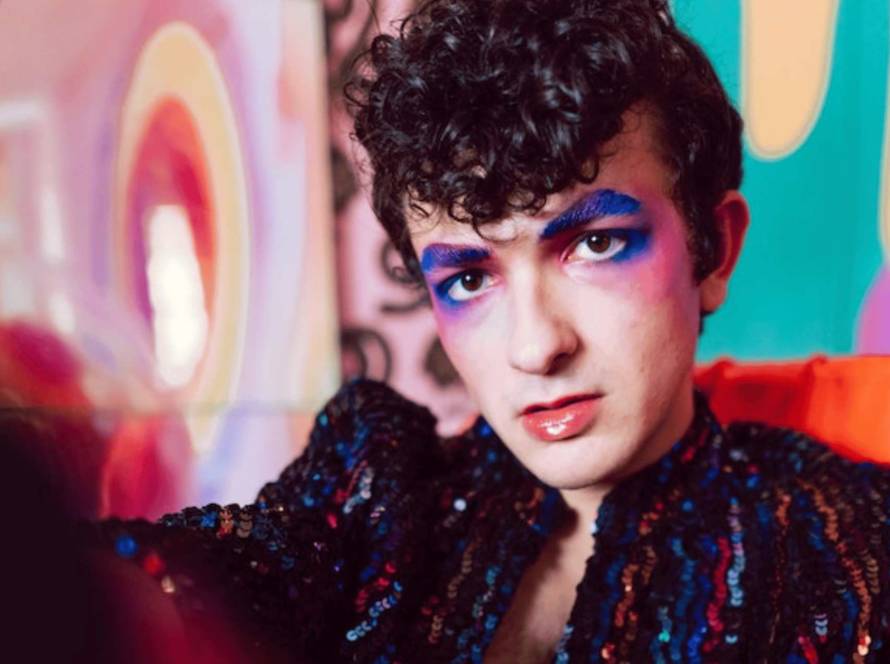Exclusive or Non-Exclusive: Which Influencer Talent Agency Agreement Will Suit You Best?
Are you at that exciting crossroads where you’re considering signing a Talent Agency Agreement? Congratulations on this milestone! Whether you’re new to agency representation or looking for a fresh start, it’s crucial to understand the ins and outs of Exclusive and Non-Exclusive Agency Agreements.
Each agreement is very different as they can vary vastly in how much the agency will charge you, how they will market you, and, potentially how much money you’ll earn.
What is a Talent Agency Agreement?
If properly prepared, a Talent Agency Agreement is a legally binding contract between you and a talent agency. These agreements are far from one-size-fits-all; they should be drafted to meet your individual needs and those of the agency. They set the tone for how your influence will be managed, marketed, and monetised.
Exclusive Talent Agency Agreements
Exclusive Agreements are a type of talent agency contract where the influencer agrees to work exclusively with one agency for a specified period, which is called a Term. This means that during the Term of this agreement, the influencer cannot sign with or be represented by any other agency. It’s a commitment that ties both the influencer and the agency in a close, often more personalised partnership. The exclusive nature of this agreement typically means that the agency invests more resources and effort into managing and growing the influencer’s career, expecting a higher level of loyalty and commitment in return.
Key Characteristics of Exclusive Talent Agreements
- Restrictions on Working with Other Agencies: The most defining feature of an Exclusive Agreement is its restriction clause. The influencer is legally bound to work only with the agency they have signed with. This exclusivity extends to negotiations, brand deals, and any form of representation. It’s a two-edged sword; while it limits the influencer’s ability to explore opportunities independently or through other agencies, it also ensures a focused and dedicated management approach from the signed agency. It’s also important to note that any inbound enquiries you receive directly, are most likely going to need to be referred to the agency for negotiation and therefore, subject to their commission and fees.
- Duration and Scope of Exclusivity: The duration of exclusivity in these agreements can vary, typically ranging from a year to several years. Influencers should pay close attention to the duration clause, as it can significantly impact their flexibility and career decisions. The scope of exclusivity is another crucial aspect. Some agreements might be all-encompassing, covering all aspects of an influencer’s career, while others may have specific limitations, such as exclusivity only in certain areas of work or geographical regions.
- Inter-Agency Collaboration: It’s important to understand that exclusive doesn’t always mean isolated. Often, talent agencies collaborate behind the scenes. For instance, if an agency that doesn’t represent the influencer directly has an opportunity that fits their profile, they can approach the influencer’s exclusive agency to negotiate a deal. In these scenarios, both agencies may work together, agreeing privately to split commissions and fees. This kind of collaboration expands the influencer’s reach and opportunities while maintaining the integrity of the Exclusive Agreement. It’s a strategic way for agencies to pool resources and opportunities, benefitting both the influencer, agencies and brands involved.
- Potential Benefits: Despite the restrictions, Exclusive Agreements can offer substantial benefits. One of the most significant is focused representation. Influencers often (or should) receive more personalised attention, strategic career planning, and access to higher-quality opportunities. The agency also has more incentive to invest in the influencer’s branding and marketing, accessing premium deals and collaborations that might not be available to those without exclusive representation. This can be particularly beneficial for influencers looking to elevate their profile and engage with more prestigious brands.
Exclusive Agreements offer a trade-off between exclusivity and what should be a more intensive, focused management approach. While they may limit the influencer’s ability to work directly with other agencies, they can also open doors to opportunities and provide a level of attention and strategic management that is very different non-exclusive agreements. It’s a decision that requires careful consideration of your current status, career goals, and the level of trust and rapport with the agency.
Non-Exclusive Talent Agency Agreements
Non-Exclusive Agreements offer a different kind of talent management arrangement. Unlike Exclusive Agreements, these contracts allow influencers to work with multiple agencies – and themselves. They’re designed for flexibility and autonomy, enabling influencers to broaden their network and opportunities without being tied to a single agency. These agreements might suit influencers who prefer to have a diversified portfolio of representation, often appealing to those who enjoy having direct control over their career paths and partnerships.
Key Characteristics of Non-Exclusive Talent Agency Agreements
- Freedom to Work with Multiple Agencies: The hallmark of a Non-Exclusive Agreement is the ability it provides to influencers to collaborate with several agencies. This opens up a opportunities, as different agencies might have varied strengths, connections, and specialisations.
- Flexibility in Choosing Projects: Non-Exclusive Agreements grant influencers the flexibility to select projects that align closely with their brand and personal goals. Without the binding commitment to an exclusive agency’s portfolio, influencers might be presented a wider variety of offers, choosing those that best fit their image and aspirations.
- Potential Drawbacks: While Non-Exclusive Agreements offer freedom and flexibility, they also come with potential drawbacks. One key disadvantage is the possibility of receiving less personalised attention from any single agency. Since agencies will prioritise their exclusive clients, non-exclusive influencers may find themselves navigating some aspects of their career more independently. Without a dedicated agency investing deeply in their career, influencers might miss out on strategic guidance and long-term planning that Exclusive Agreements often provide. It’s a balance of autonomy versus the comprehensive support exclusive agencies can offer.
Non-exclusive agreements provide a pathway for influencers who value independence. They offer the freedom to collaborate with multiple agencies and sometimes, the flexibility to choose projects that best fit the influencer’s preferences. However, this comes with the trade-off of potentially less personalised and prioritised attention and the need for influencers to be more proactive in managing their careers and relationships with various agencies.
Legal Aspects of Talent Agency Agreements
When signing there’s much more to consider than an exclusive or non-exclusive arrangements, including that the agreement will likely be legally binding and will need to have careful consideration of the entire agreement in terms of:
- Contract Terms
- Termination Clauses
- Commission Rates, Other Fees and Payment Terms
Listen in to other episodes on Talent Management Agencies and Agreements, and always seek qualified and experienced legal advice before signing a contract. This will protect your interests and ensure a transparent and beneficial relationship with your agency.
Tips for Making the Right Choice for Your Influencer Career
Choosing between exclusive and non-exclusive talent agency agreements is a big decision for you. It requires careful consideration of various factors to make sure that your chosen path aligns well with your career aspirations and personal preferences.
Assess Your Career Stage:
- If you’re just starting out, a Non-Exclusive Agreement might offer the flexibility to explore various opportunities and find your niche. It allows you to work with multiple agencies and gain a broad understanding of the industry.
- For more established influencers, an exclusive agreement could provide the focused support and strategic guidance needed to elevate your brand to the next level. The dedicated attention from one agency can be instrumental in pursuing bigger, more lucrative deals.
Clarify Your Goals:
- Think about what you aim to achieve in the short and long term. Are you looking to experiment with a variety of brands and collaborations, or do you wish to build a more consistent brand identity with strategic collaborations?
- Consider how each type of agreement aligns with these goals. An exclusive agreement might be more suitable for targeted, long-term objectives, while a non-exclusive agreement could cater to a broader, more exploratory approach.
Reflect on Personal Preferences:
- Evaluate your comfort level with independence versus support. Do you thrive on managing your own opportunities and negotiations, or do you prefer having a dedicated team to handle these aspects?
- Consider how much control you want over your collaborations. Exclusive agreements might mean relinquishing some control in exchange for strategic guidance, whereas non-exclusive agreements offer more autonomy.
Don’t hesitate to seek advice from other influencers or industry professionals who have experienced both types of agreements. Their insights can be invaluable in helping you make an informed decision.
Choosing the right type of talent agency agreement is a big decision. Reflect on your career stage, goals, and working style. Seek advice and ensure that the agreement you choose supports your career aspirations, values and personal brand.
For expanded discussion, including my POV as a Talent Manager with 10+ years global experience, listen to Episode 20 of The Business Of Influence Podcast: Exclusive vs Non-Exclusive Talent Agreements

